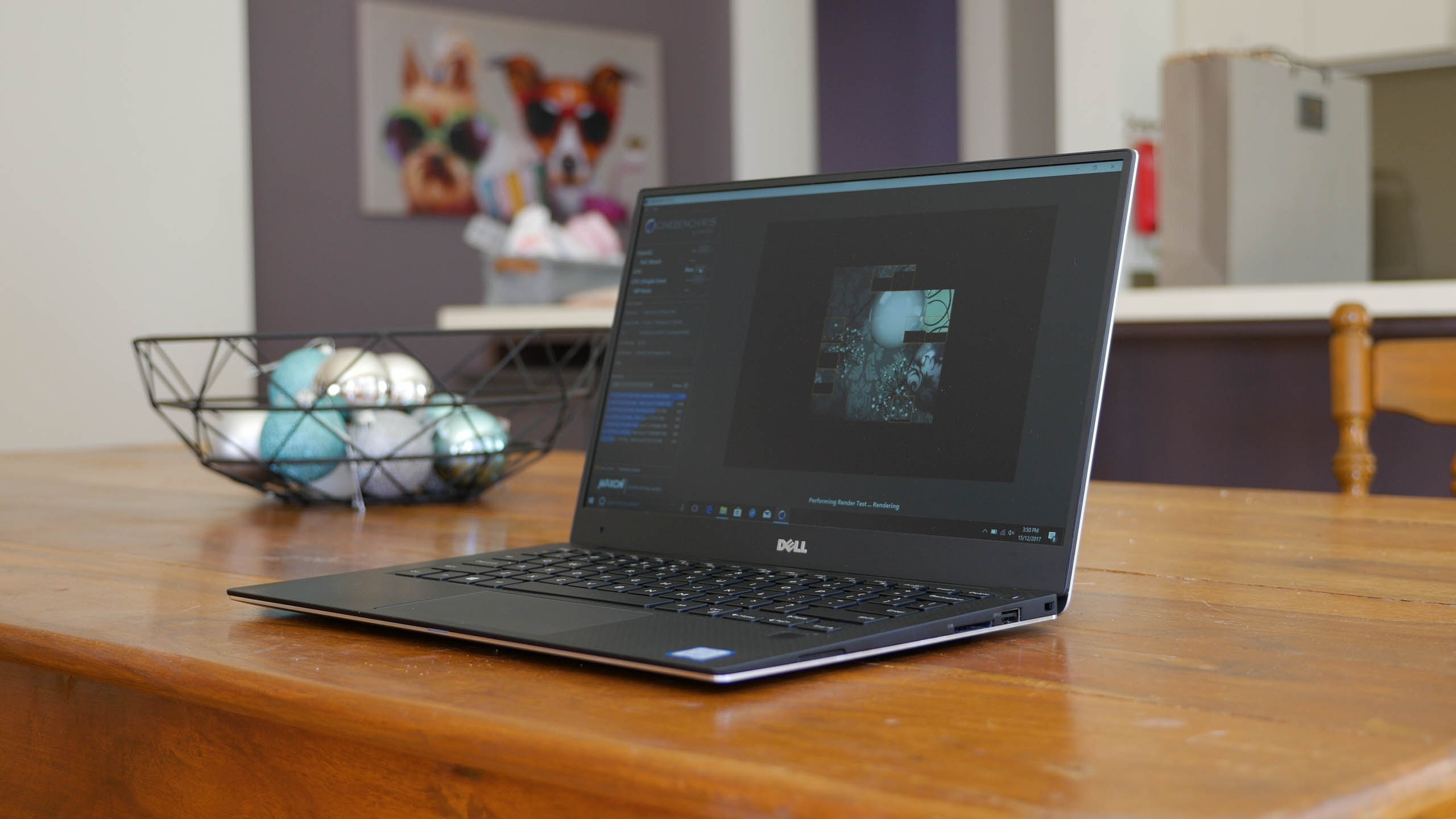System Performance
Let's move on to talk about the big change in the Dell XPS 13: the upgrade from 7th gen to 8th gen U-series processors from Intel. Unlike previous releases, which only brought minor performance improvements, Intel latest parts manage to grow from two cores and four threads, to four cores and eight threads, in the same 15W TDP and with relatively similar power consumption.
Intel has even managed to increase peak clock speeds with 8th gen parts. Looking at the Core i7-8550U compared to the Core i7-7500U, single and dual-core Turbo speeds jump to 4.0 GHz from 3.5 GHz, while the 8550U can hit 3.7 GHz on all four cores. However, base clocks do drop from 2.7 to 1.8 GHz, and during sustained workloads on all cores, you'll see lower clock speeds on the newer chips.



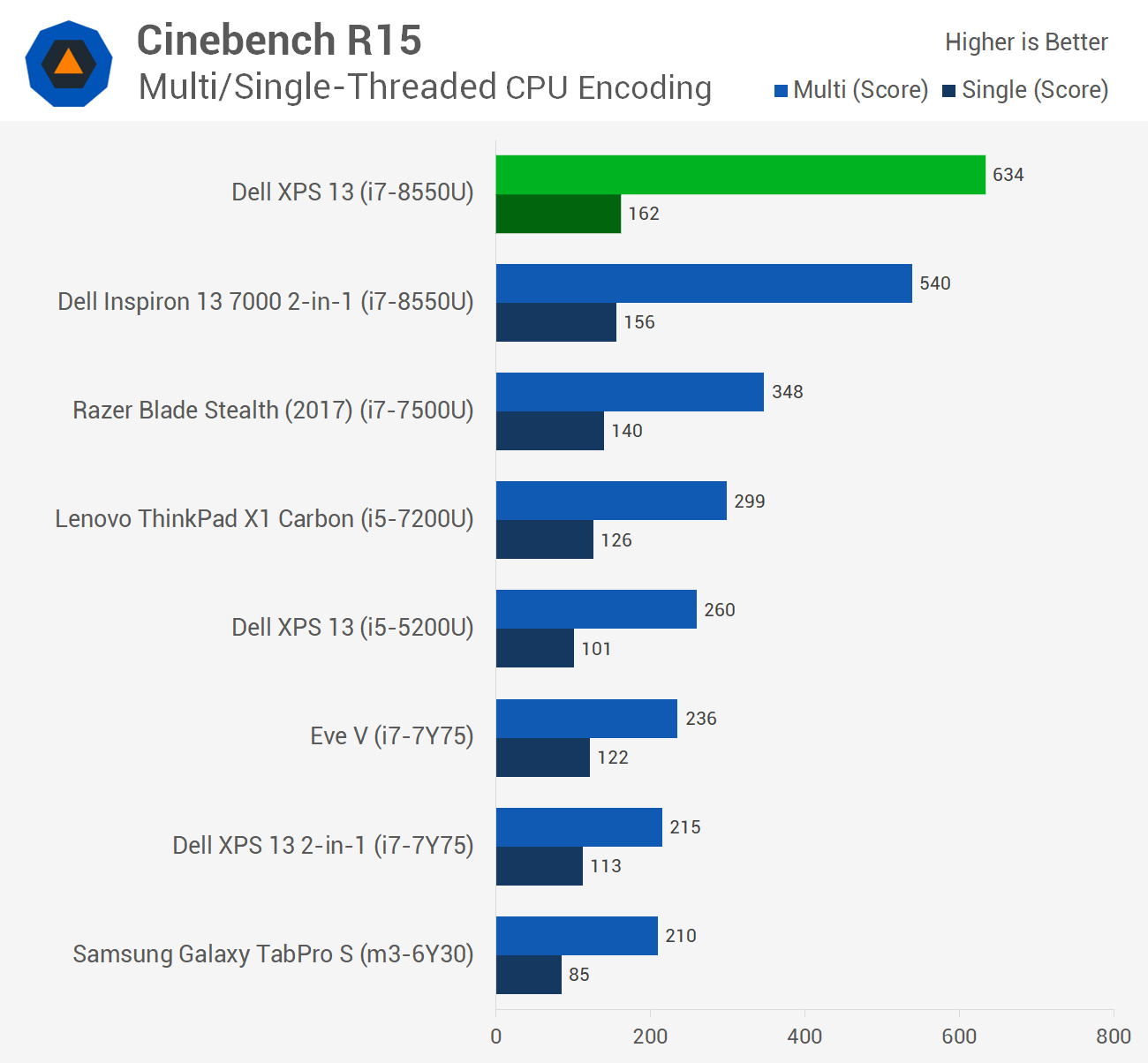
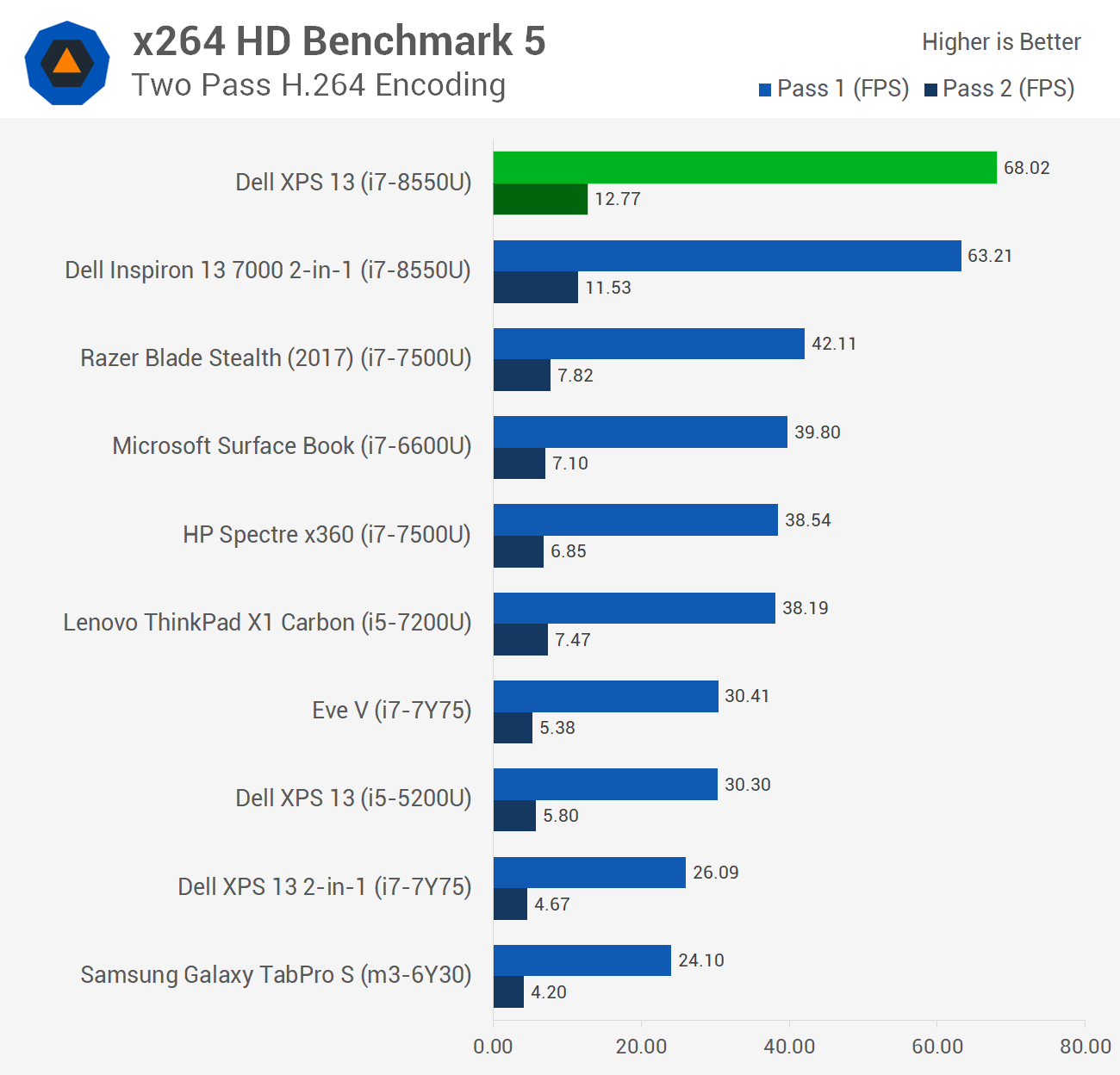
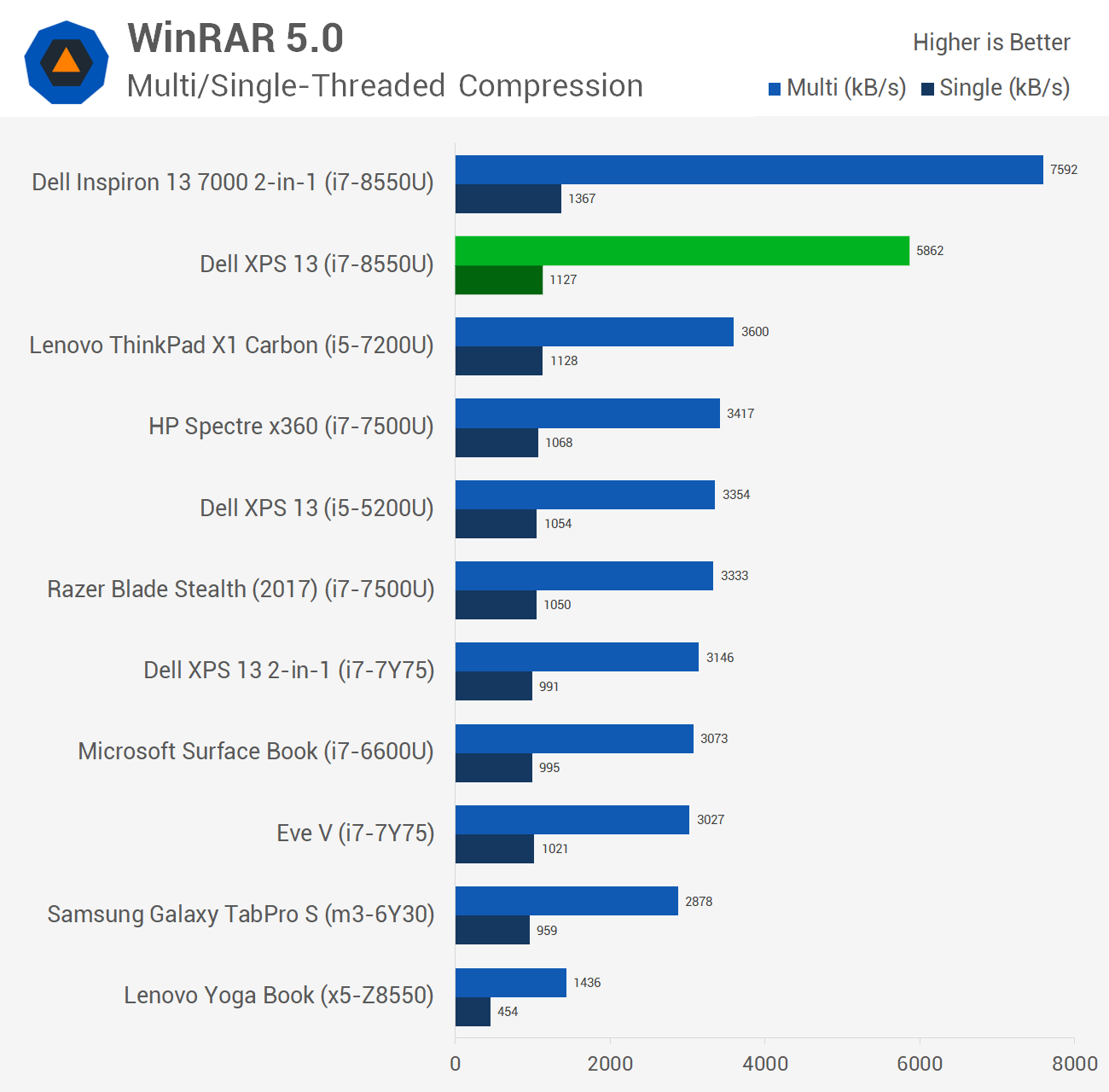
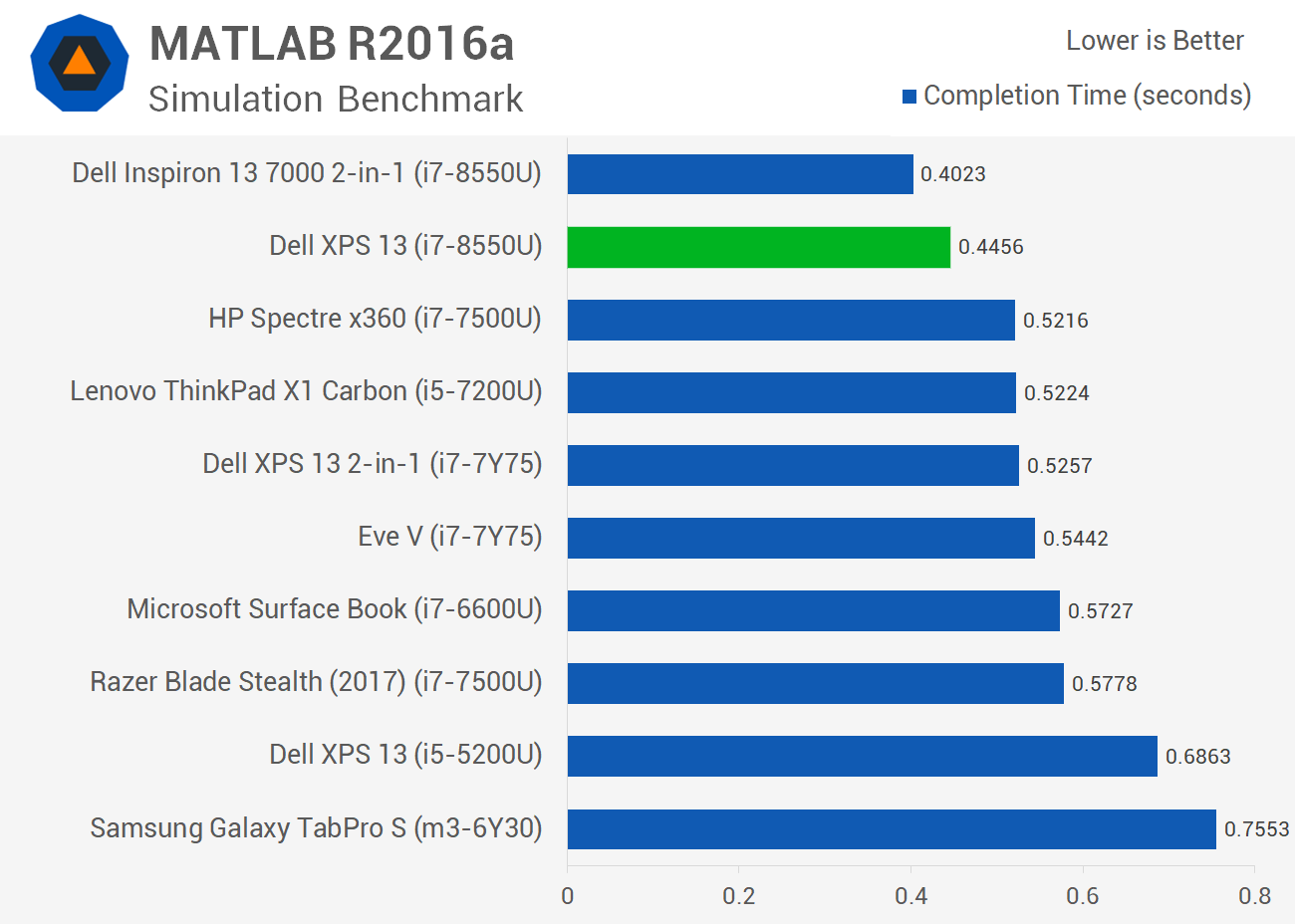
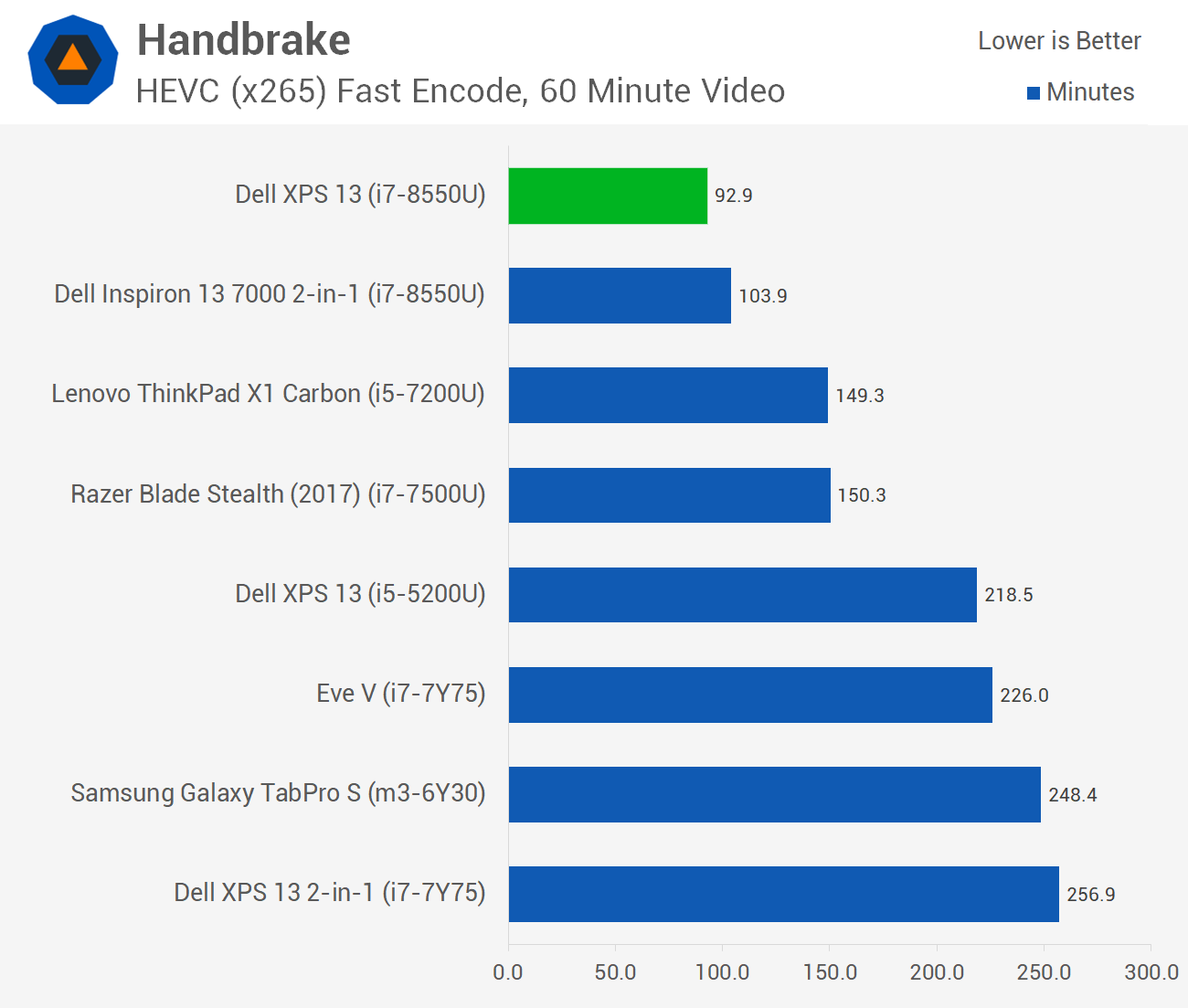
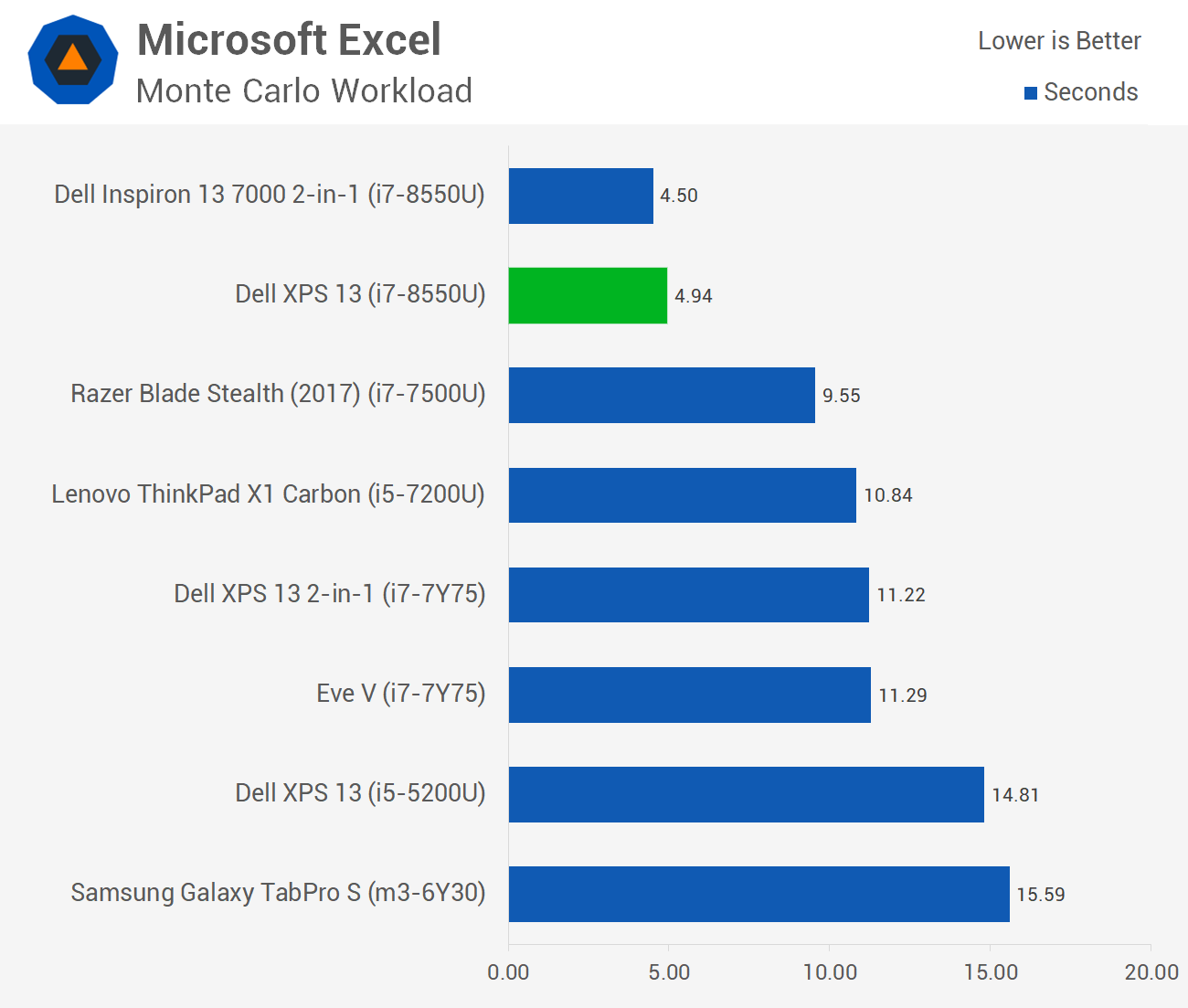
Starting with a look at shorter workloads, which are what post people do on an ultraportable, the Core i7-8550U in my Dell XPS 13 review unit stacks up well. In some cases, like the Excel Monte Carlo workload, the 8th-gen Kaby Lake R part is twice as fast as last-gen Kaby Lake CPUs. At other times, like in MATLAB, gains are a more modest, though still impressive, 30 percent. You can also see strong improvements in PCMark, which feature a collection of short and longer workloads.
However there are some interesting things to note here. The Dell XPS 13 does not always reach the same levels of performance as the Inspiron 13 7000 2-in-1 I looked at a couple of months ago in these short workloads, falling 23 percent behind in some cases like WinRAR. This appears to be due to a combination of less time at maximum boost clocks, and around 15 percent less memory bandwidth, and some of these benchmarks are memory heavy.
The good news is that the XPS 13 compensates for this through excellent sustained performance. In 3D rendering workloads like Cinebench and video rendering like x264 encoding, the XPS 13 was as much as 17 percent faster than the Inspiron 13 7000, which uses the exact same CPU.
The i7-8550U also holds a commanding lead against the last-gen i7-7500U. In Cinebench multi-threaded it's 82 percent faster, while you also get single-thread gains of 16 percent thanks to higher clock speeds. The Kaby Lake-R CPU is also capable of rendering an x264 video around 62 percent faster, which is an enormous gain in a mobile form factor.
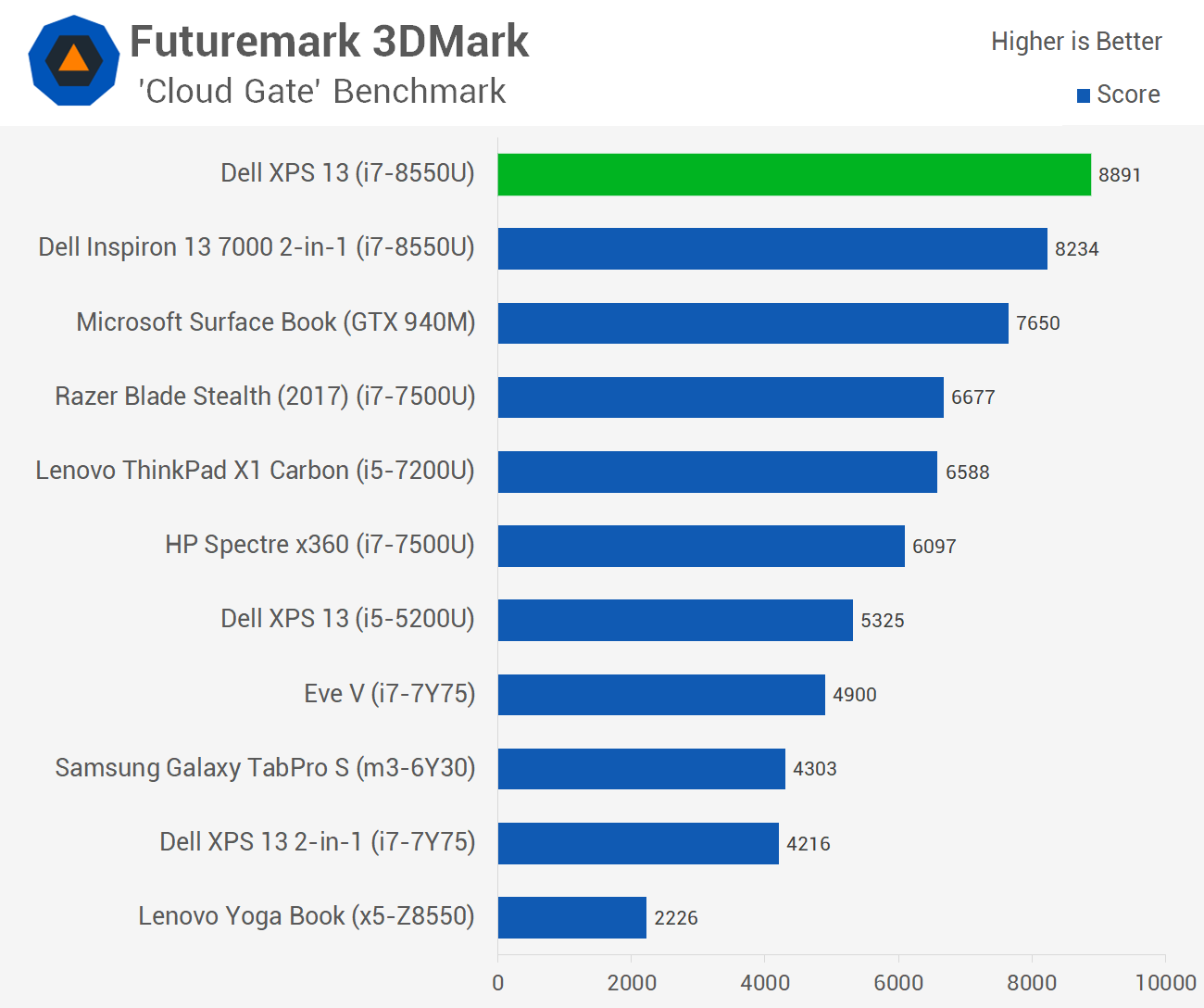
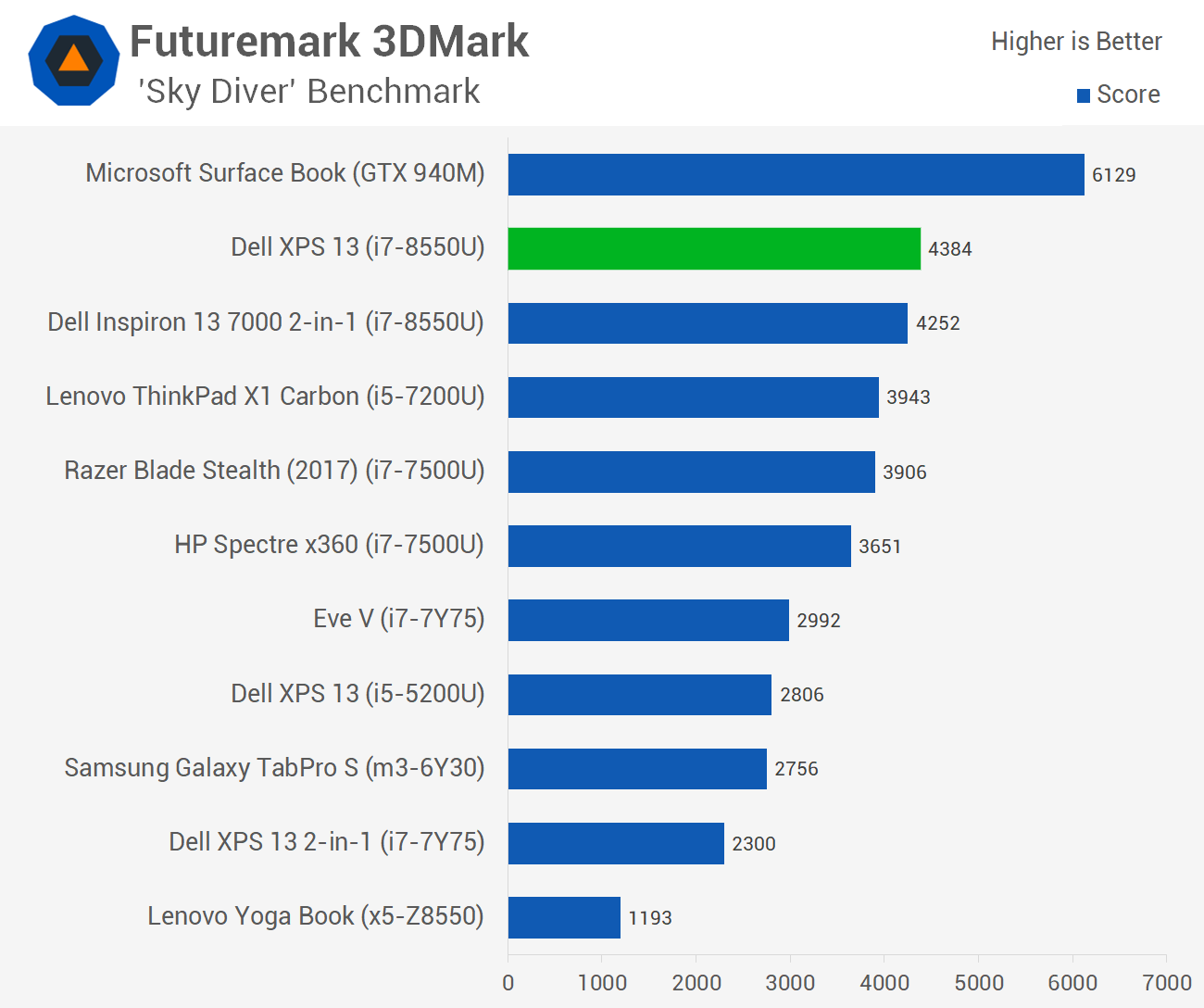
Graphics performance has also improved, though not by nearly as much as CPU performance. In the heaviest graphics workloads, Kaby Lake-R sees gains in the 5 to 10 percent range, though in more CPU demanding games or less intensive titles, the extra CPU performance does improve things a bit.
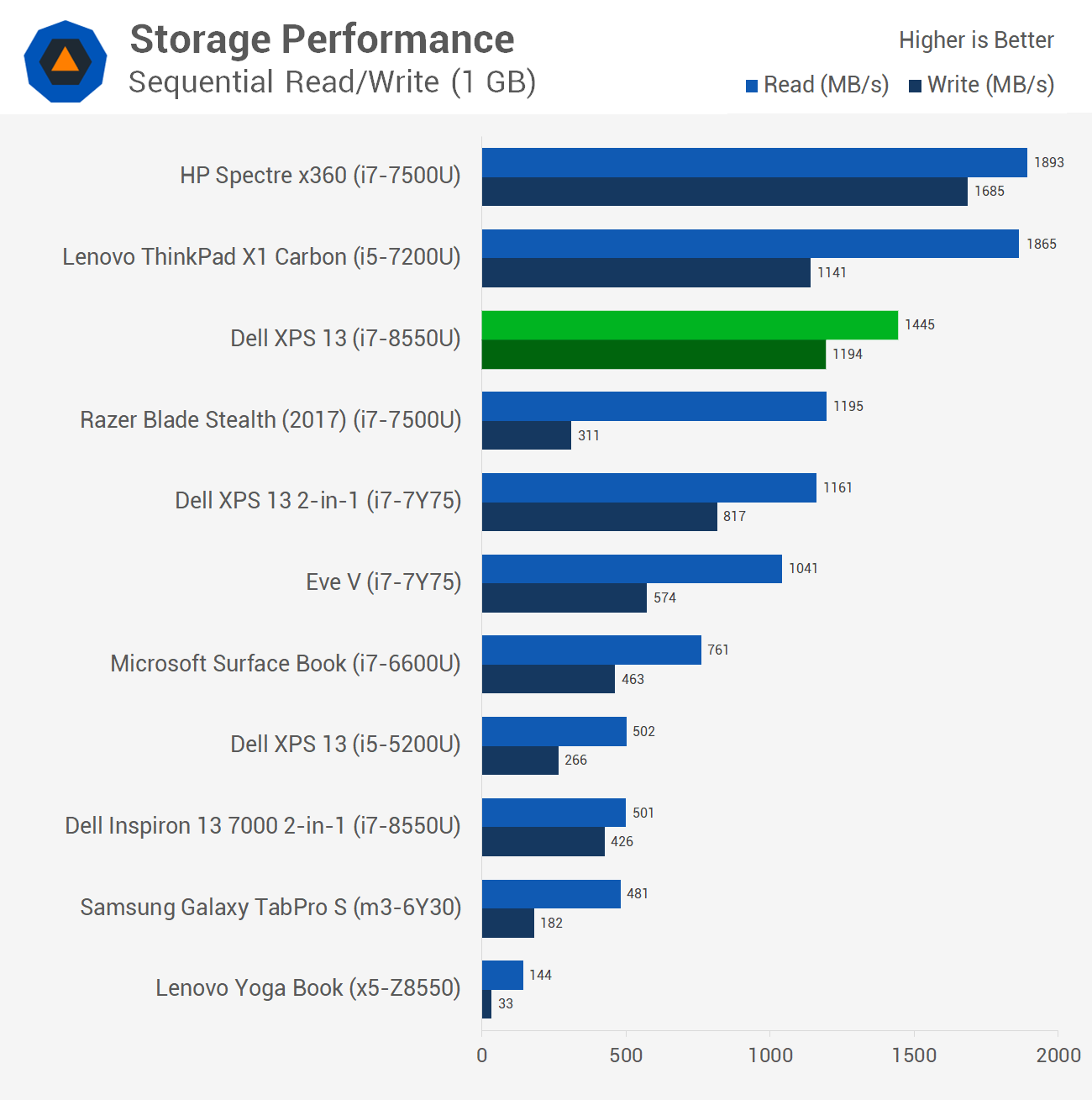
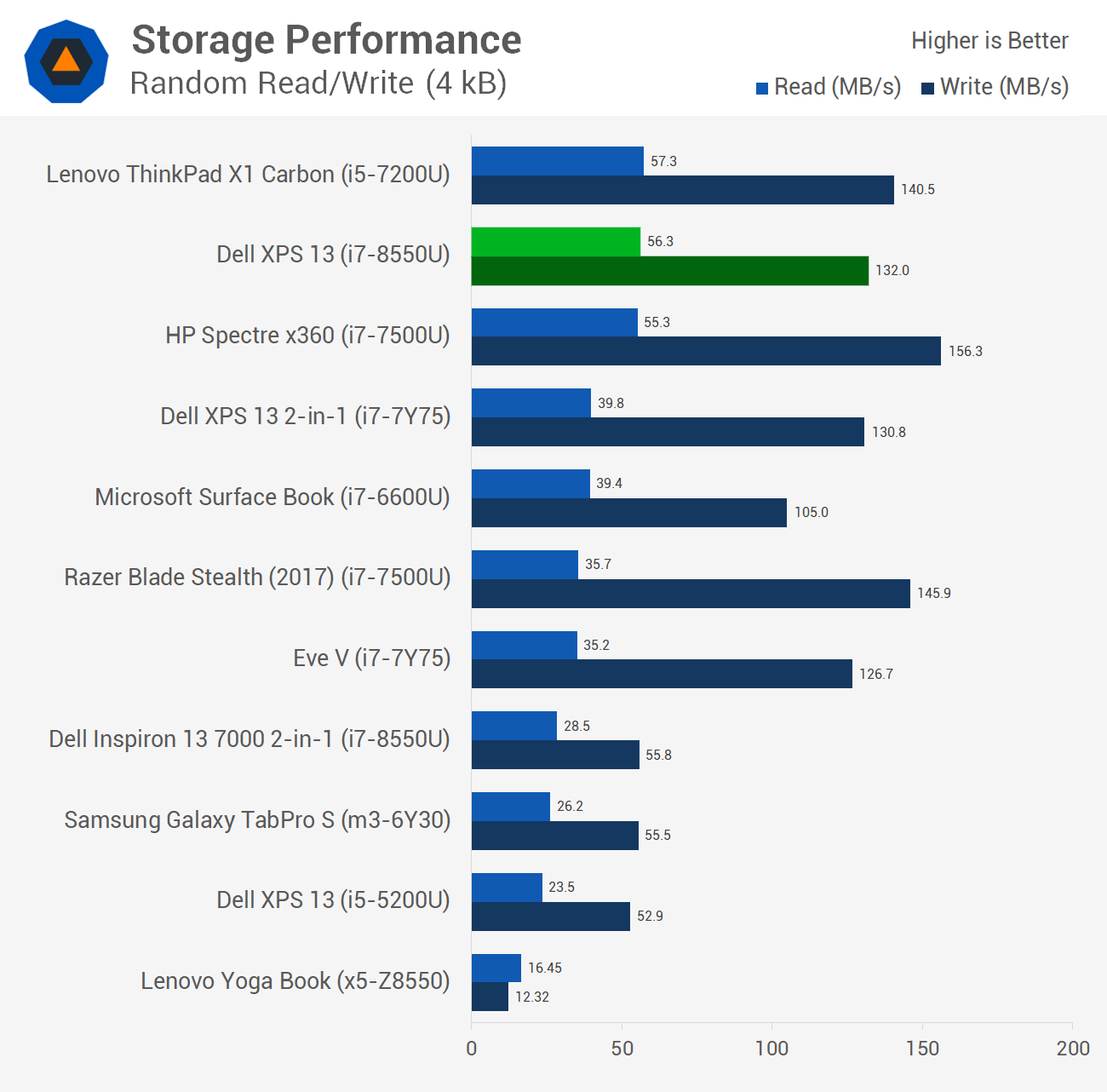
For storage, the XPS 13 uses a Samsung PM961, at least in my review unit with a 256GB drive. This is a fairly common drive for high-end ultraportables like this, so it's performance isn't surprising: excellent sequential reads and writes that exceed 1 GB/s, with very solid random performance as well. It's not going to blow you away considering its popularity, but it's very fast for everyday usage.
